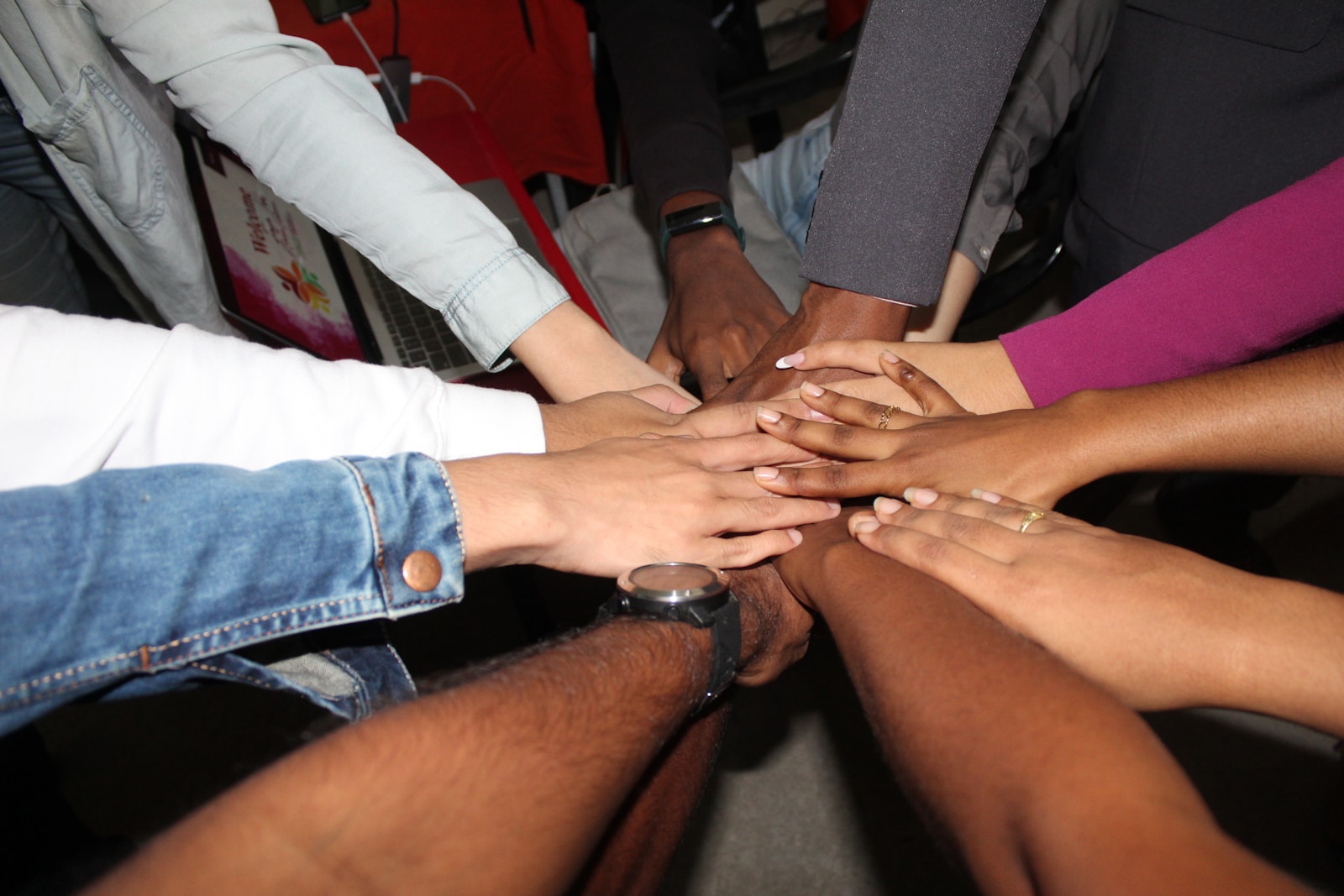Being far away from home can be one of the toughest challenges that people face. Whether it’s moving to a new state or a new country, you may want to leave just as soon as you arrive. It can induce anxiety, stress, fear, depression, and overwhelmingness all because you are in a place that you aren’t familiar with. Luckily, there are ways to get used to your new surroundings, ways to ground yourself so that you can adapt and remind yourself of how in control you are.
For instance, as a kid from Maryland, I remember feeling anxious when I arrived for college in upstate New York. I didn’t know anyone, and it was my first time living in a new state. I wasn’t familiar with the place, its community, or its culture. The impact that this had was a bit overbearing at first, but like with any challenge, I just had to give it a shot. So, I grounded myself.
To ground myself, I wrote daily journal entries. Some would be about how my day went. Some would be creative writing pieces. Some would just be random thoughts, and anything else that came to mind. Regardless, it wasn’t the word count, the page count, or the topic that mattered. All that mattered was that I was in control of my unfamiliar surroundings. I was stabilizing myself in real time by practicing a small daily habit, reminding myself that even in the most unfamiliar of places I still had control. I was still me, and no new place would make believe that I didn’t belong there. Before I knew it was walking around upstate New York as if I had lived there my entire life. And you can experience this feeling as well.
This isn’t a superpower. This isn’t something that only a select few are capable of. Grounding yourself can come in the form of many daily habits such as exercising, cooking, reading, or listening to a song. You can strike up a conversation with a local to learn about a different community and culture. You can even practice meditation techniques to help keep your mind at ease. Whatever the case, and whichever method you choose, it hardly matters as long as you’re grounded and in control.
Remember, you will always be you. Never let anything change that.
Feeling Lost When You’re Far From Home?
Let’s face it: being far from home can feel like you’re floating in the middle of the ocean with no land in sight. Whether you’ve moved to a different country, relocated for school, taken a job across the country, or just stepped away for an extended trip, the sense of displacement can hit hard. The sights, the sounds, the people even the air can feel unfamiliar. And when everything’s unfamiliar, your inner world can start to feel a little shaky too.
But here’s the good news: grounding yourself is possible. It’s not magic, and it’s not reserved for the spiritually elite. It’s a practice—a daily, doable, deeply human process that brings you back to yourself. In this blog, we’ll explore what grounding actually means, why it’s crucial when you’re far from home, and how to practice it in simple, soul-nourishing ways.
What Does It Mean to Ground Yourself?
Grounding is the act of bringing yourself back to the present moment emotionally, mentally, and even physically. When you’re grounded, you feel stable, secure, and connected to yourself. You’re not floating, not spiraling, not overthinking. You’re simply here, in your body, in your breath, with your feet planted firmly even if you’re in the middle of an unfamiliar place.
In practical terms, grounding helps reduce:
- Anxiety
- Overwhelm
- Homesickness
- Panic attacks
- Emotional fatigue
My Story: Grounding Myself in Upstate New York
Let me tell you a quick story. As a kid from Maryland, arriving in upstate New York for college was a shock to the system. I didn’t know a soul. Everything was new. The accent was different. The weather was brutal. I felt like I was drifting emotionally and mentally.
So I started journaling. Nothing fancy, just a few thoughts each day. Some days I wrote about what I saw. Other days it was random creative writing. Some entries were messy and made no sense. But over time, that little habit grounded me. It was my way of saying, “Hey, I’m still here. I still have a voice. I still matter in this new place.” And little by little, the unfamiliar became familiar.
7 Soulful Grounding Techniques for When You’re Far From Home
1. Journal Your Thoughts
Get a notebook. Or open the Notes app on your phone. Write about your day, your feelings, your thoughts, or even your to-do list. Let the words be messy. You’re not writing a novel, you’re anchoring your soul.
Why it works: Journaling helps you process what you’re experiencing, which can reduce emotional overload and help you feel more in control.
-
Create a “Home” Routine
Even if your surroundings are unfamiliar, you can create pockets of familiarity through routine. Morning tea? Evening walk? Daily affirmations? Pick one or two small rituals and stick to them.
Pro tip: Start your morning with the same 3-step routine you had at home even if it’s just brushing your teeth, listening to music, and stretching. Familiarity creates comfort.
-
Get Moving
Exercise is one of the most underrated grounding tools out there. Take a walk, do yoga, dance in your room whatever gets your body moving. It helps shift your energy and brings you back into your body.
Grounding tip: Go barefoot on natural ground (grass, dirt, sand) if possible. This technique is called “earthing,” and it can actually calm the nervous system.
-
Connect With a Local (Even Just One!)
Feeling isolated can amplify homesickness. Reach out to someone, a neighbor, a barista, a classmate. Ask them a question about the area. Learn their story.
You don’t need to make 10 new best friends. Just one genuine connection can make a huge difference.
5. Cook a Dish From Home
Taste and smell are powerful memory triggers. Recreate your mom’s lasagna or your go-to comfort meal. Don’t worry if it’s not perfect..
-
Practice Grounding Meditation or Breathwork
Simple breathwork can bring you back into the moment. Try the 4-7-8 technique: inhale for 4 seconds, hold for 7, exhale for 8. Do this for a few rounds and feel your energy settle.
Bonus: Apps like Insight Timer or Calm offer grounding meditations specifically for anxiety and disconnection.
-
Stay Connected to Loved Ones
Yes, it’s important to stay in touch with family and friends back home. But relying on them too much can prevent you from immersing in your new environment. Schedule regular catch-ups, then give yourself space to explore.
What to Remind Yourself Daily
- “I am allowed to feel out of place. That doesn’t mean I don’t belong here.”
- “Every place was once unfamiliar to someone.”
- “I carry my home within me.”
- “Grounding doesn’t mean forgetting. It means integrating.”
FAQs About Grounding When You’re Far From Home
Q: How long does it take to feel grounded in a new place?
A: It varies! Some people feel settled in weeks, others take months. The key is consistency in your grounding practices and giving yourself grace.
Q: What if nothing helps and I still feel lost?
A: That’s okay, acknowledging it is a powerful first step. If the feelings persist, consider speaking with a therapist or counselor, especially one trained in transitions or relocation anxiety.
Q: Can grounding help with culture shock?
A: Absolutely. Grounding helps you regulate your emotional response so you can process new cultural experiences without shutting down or becoming overwhelmed.
Final Thoughts: You’re Not Alone in This
Truth is, being far from home can be one of the hardest things we go through but it also offers an opportunity to grow, evolve, and strengthen your inner compass.
Grounding doesn’t mean you stop missing home. It means you make space for new experiences while still honoring where you come from. It’s your bridge between who you were and who you’re becoming.
So whether it’s through a journal, a home-cooked meal, or a long walk in a new city, choose to root yourself. Choose to stay. Choose to grow.
Helpful External Links:
30 Grounding Techniques to Quiet Distressing Thoughts










